
Beirut - The Paris of the Middle East
Beirut, Lebanon's capital, is a city that blends the old and the new. It’s a place where ancient history meets modern lifestyle, making it a fascinating destination for any traveler. The city is known for its vibrant and diverse culture, which is reflected in its food, architecture, and people. Stroll through the streets and you’ll find Roman ruins next to chic cafes and boutiques, a testament to Beirut’s rich and varied past. The Corniche, a seaside promenade, offers stunning views of the Mediterranean Sea. It's a perfect spot for a leisurely walk, a jog, or just to watch the sunset. Nearby, the Pigeon Rocks, natural rock formations, are an iconic sight and a favorite spot for both locals and tourists. For history enthusiasts, the National Museum of Beirut holds a treasure trove of artifacts that tell the story of Lebanon’s long and storied history. Beirut is also a city that comes alive at night. Its nightlife is legendary, with a wide range of bars, clubs, and restaurants that cater to all tastes. From traditional Lebanese music to the latest international hits, there's something for everyone. And of course, the food is not to be missed. Lebanese cuisine is renowned for its flavors and freshness, with dishes like hummus, tabbouleh, and shawarma being must-tries. Shopping in Beirut is a unique experience, with everything from high-end fashion in downtown Beirut to traditional crafts in the markets of Hamra and Mar Mikhael. The city’s art scene is also thriving, with galleries and street art that showcase the talents of local and international artists. Whether you’re here to relax, explore, or immerse yourself in the culture, Beirut has something to offer every visitor.
Local tips in Beirut
- Visit the Corniche at sunset for the best views of the Mediterranean Sea and Pigeon Rocks.
- Try traditional Lebanese dishes at local restaurants for an authentic culinary experience.
- Use the city's reliable taxi service to get around easily, especially when visiting different neighborhoods.
- Check out local art galleries and street art in the Gemmayze and Mar Mikhael areas.
- Stay aware of local customs and dress modestly, especially when visiting religious sites.
- Make sure to visit the National Museum of Beirut for a deep dive into Lebanon’s history.
Neighbourhoods in Beirut
Beirut - The Paris of the Middle East
Beirut, Lebanon's capital, is a city that blends the old and the new. It’s a place where ancient history meets modern lifestyle, making it a fascinating destination for any traveler. The city is known for its vibrant and diverse culture, which is reflected in its food, architecture, and people. Stroll through the streets and you’ll find Roman ruins next to chic cafes and boutiques, a testament to Beirut’s rich and varied past. The Corniche, a seaside promenade, offers stunning views of the Mediterranean Sea. It's a perfect spot for a leisurely walk, a jog, or just to watch the sunset. Nearby, the Pigeon Rocks, natural rock formations, are an iconic sight and a favorite spot for both locals and tourists. For history enthusiasts, the National Museum of Beirut holds a treasure trove of artifacts that tell the story of Lebanon’s long and storied history. Beirut is also a city that comes alive at night. Its nightlife is legendary, with a wide range of bars, clubs, and restaurants that cater to all tastes. From traditional Lebanese music to the latest international hits, there's something for everyone. And of course, the food is not to be missed. Lebanese cuisine is renowned for its flavors and freshness, with dishes like hummus, tabbouleh, and shawarma being must-tries. Shopping in Beirut is a unique experience, with everything from high-end fashion in downtown Beirut to traditional crafts in the markets of Hamra and Mar Mikhael. The city’s art scene is also thriving, with galleries and street art that showcase the talents of local and international artists. Whether you’re here to relax, explore, or immerse yourself in the culture, Beirut has something to offer every visitor.
When is the best time to go to Beirut?
Iconic landmarks you can’t miss
Zaitunay Bay
Experience Beirut's vibrant waterfront: dining, shopping, and stunning Mediterranean views at Zaitunay Bay.
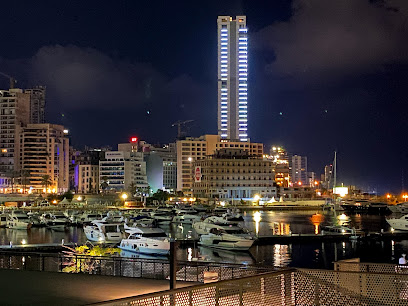
Al Raouche Rocks
Discover Beirut's iconic Al Raouche Rocks: a breathtaking natural landmark with stunning views, history, and vibrant culture.
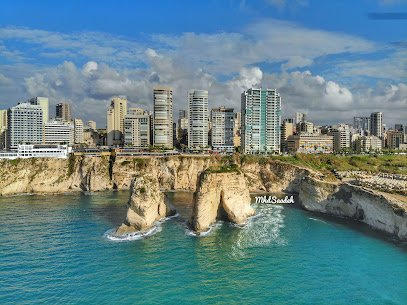
Jeita Grotto
Explore Lebanon's natural masterpiece: a stunning limestone cave with breathtaking formations and an underground river.
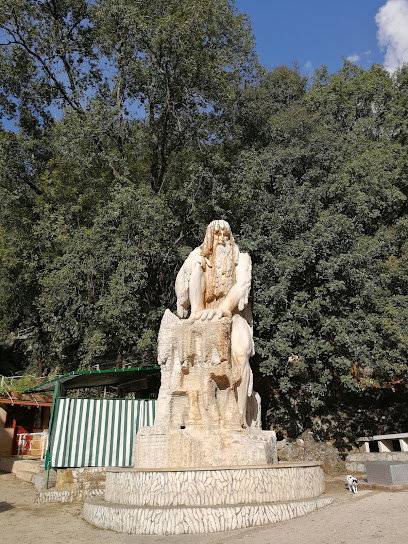
Beirut Souks
Experience Beirut Souks: Where history meets modern shopping, dining, and entertainment in the heart of Beirut Central District.
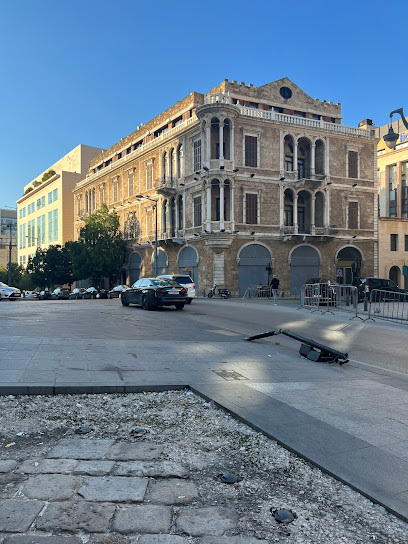
Mohammad Al Amin Mosque
Discover the breathtaking beauty and cultural significance of the Mohammad Al Amin Mosque, a must-visit landmark in Beirut, Lebanon.

National Museum of Beirut
Explore Lebanon's ancient past at the National Museum of Beirut, showcasing millennia of history and culture through its vast archaeological collections.
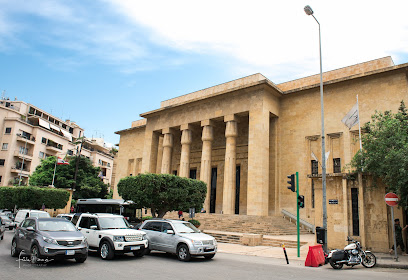
Beiteddine Palace
Discover Lebanon's architectural gem: a palace of blended styles, rich history, and stunning mountain views in the heart of the Chouf.
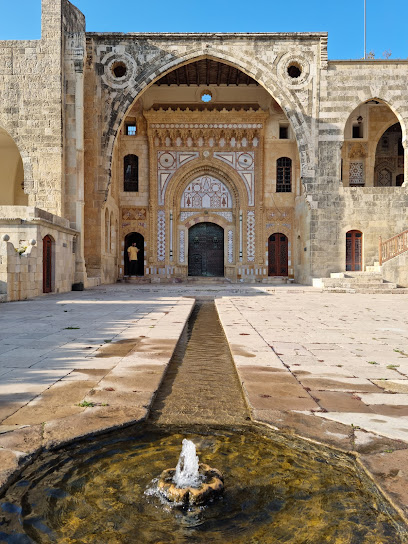
Martyrs' Square
Explore Martyrs' Square, a vibrant plaza in the heart of Beirut, rich in history, culture, and local charm.
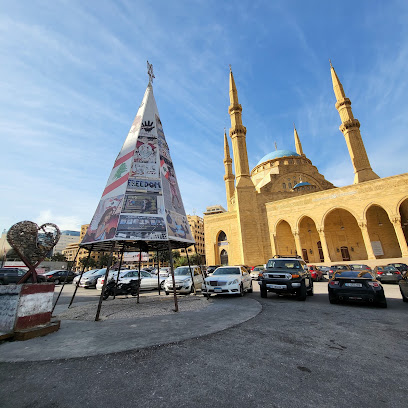
Moussa Castle
Discover Moussa Castle: A unique Lebanese landmark showcasing medieval architecture, wax museums, and panoramic views of the Chouf Mountains.
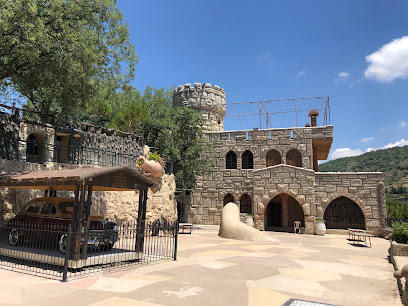
Place de l'Étoile
Discover Place de l'Étoile in Beirut: a blend of history, culture, and stunning architecture in the heart of downtown.
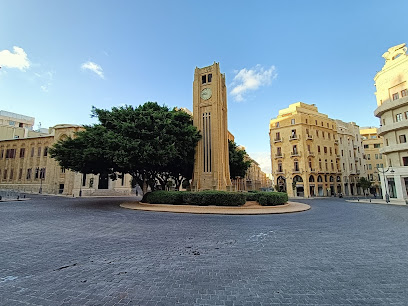
مدينة ملاهي بيروت
Experience the thrill and excitement at Beirut Luna Park, an amusement park offering fun rides, games, and picturesque seaside views for all ages.
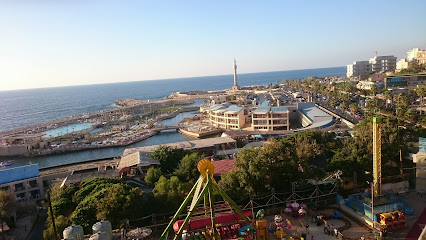
Beit Beirut - Museum and Urban Cultural Center
Explore Beirut's history and resilience at Beit Beirut, a museum and cultural center in the iconic Yellow House.
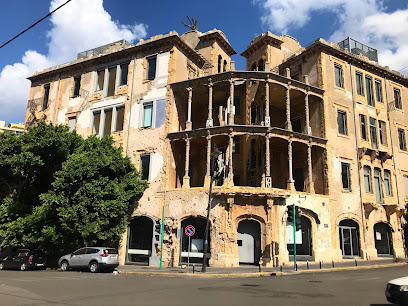
Horsh Beirut
Escape the city bustle in Beirut's largest green space, a revitalized park offering tranquility and recreation for all.
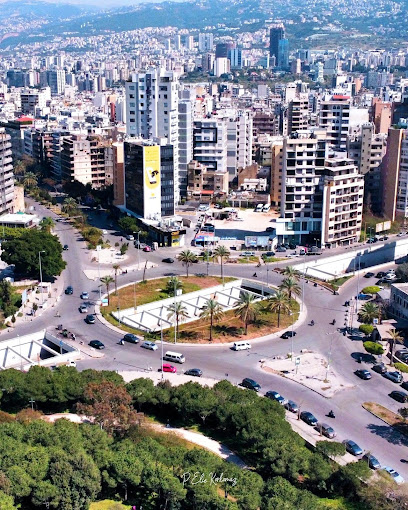
مسجد زقاق البلاط
Explore the historic مسجد زقاق البلاط in Beirut, a serene mosque with stunning Ottoman architecture and a rich cultural heritage.
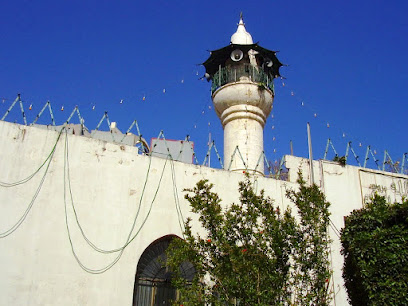
I love Beirut
Capture the spirit of Beirut at this iconic landmark, a vibrant symbol of resilience and a must-see photo opportunity in the heart of the city.
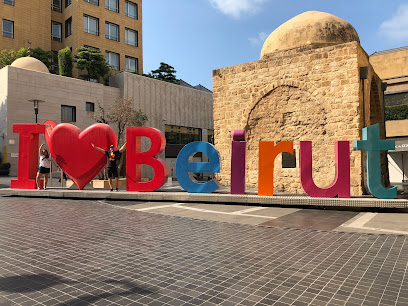
Unmissable attractions to see
Zaituna Bay
Experience the vibrant atmosphere of Zaituna Bay, a stunning marina and promenade in Beirut, perfect for dining, shopping, and relaxation by the sea.
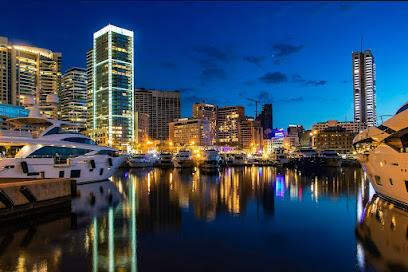
Al Raouche Rocks
Explore Al Raouche Rocks in Beirut, a breathtaking natural landmark combining stunning views, rich history, and vibrant local culture for every traveler.
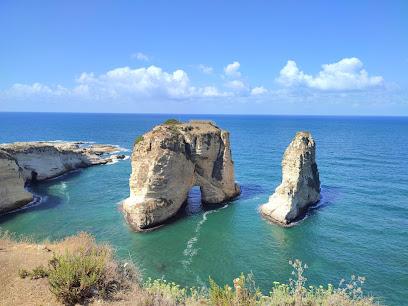
Jeita Grotto
Explore the mesmerizing Jeita Grotto, a UNESCO World Heritage site in Lebanon, featuring stunning caves and breathtaking natural beauty.
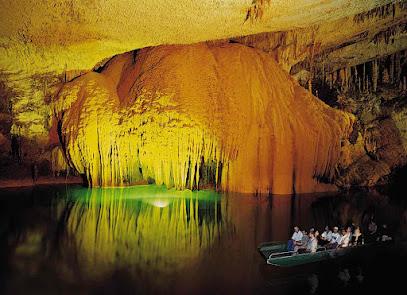
Our Lady of Lebanon بازيليك سيدة لبنان
Discover the breathtaking Our Lady of Lebanon in Harissa, a spiritual haven with stunning Mediterranean views and rich cultural significance.
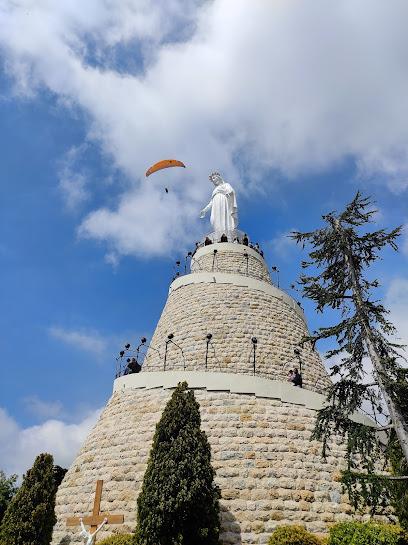
Teleferique du Liban
Discover breathtaking vistas and thrilling adventures at Teleferique du Liban, an iconic mountain cable car attraction in Lebanon.
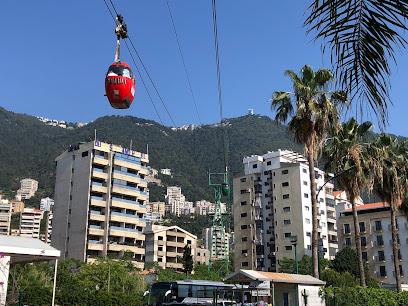
Byblos Citadel
Discover the breathtaking Byblos Citadel, a historic fortress revealing the rich tapestry of Lebanon's past amidst stunning Mediterranean views.
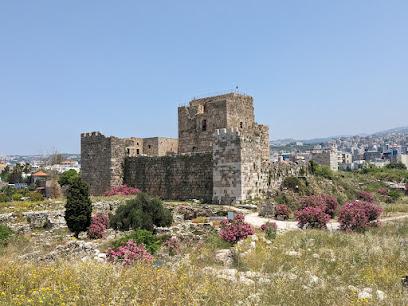
Sidon Sea Castle
Discover the historical grandeur of Sidon Sea Castle, a stunning fortress overlooking the Mediterranean, rich in history and breathtaking views.
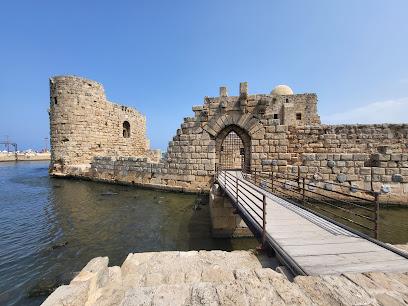
Mohammad Al Amin Mosque
Explore the breathtaking beauty and spiritual serenity of the Mohammad Al Amin Mosque, a hallmark of Beirut's rich heritage and modern Islamic architecture.
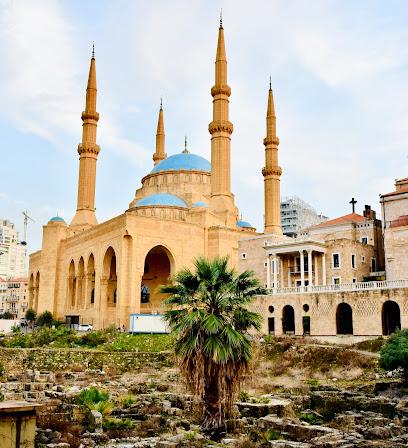
National Museum of Beirut
Explore the National Museum of Beirut for a captivating journey through Lebanon's ancient history and archaeological wonders.
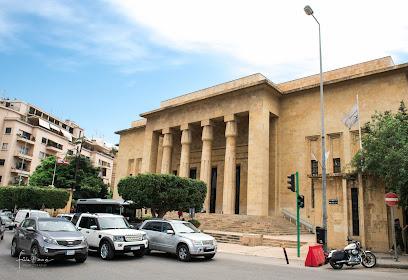
The Old Souq
Explore the vibrant Old Souq of Byblos, where history meets local culture in a bustling market filled with artisan crafts and delicious Lebanese cuisine.
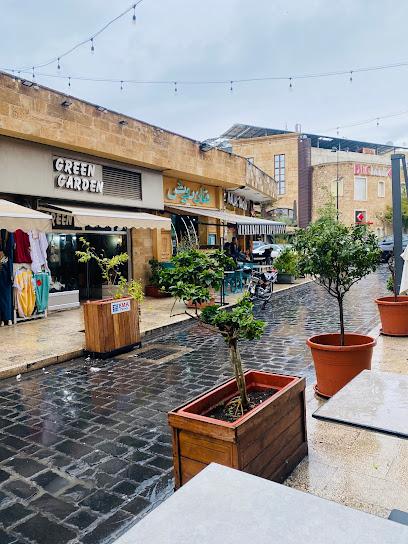
Casino du Liban
Discover the luxurious Casino du Liban, a premier entertainment destination in Jounieh, featuring gaming, gourmet dining, and vibrant nightlife.
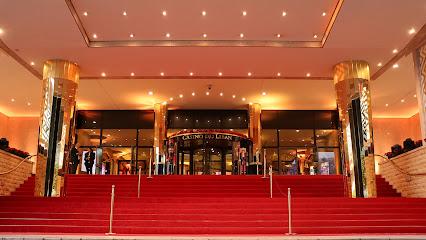
Moussa Castle
Discover the enchanting Moussa Castle in Lebanon, a historical gem offering breathtaking views, rich culture, and captivating architecture.
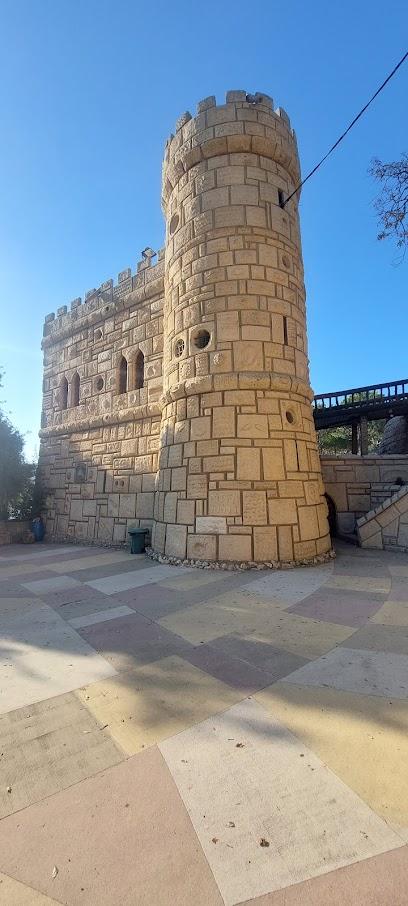
Corniche El Manara, Ain El Mraiseh
Experience the beauty of Beirut at Corniche El Manara, a vibrant coastal promenade perfect for leisurely strolls and immersing in local culture.
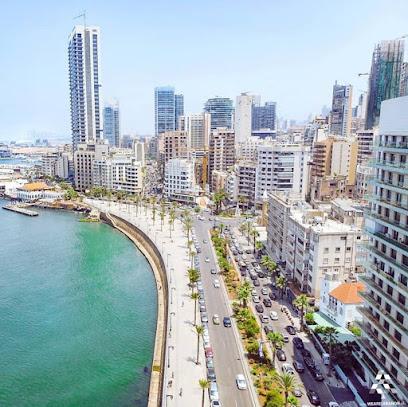
Nicolas Sursock Museum
Explore the Nicolas Sursock Museum, a cultural gem in Beirut, showcasing modern and contemporary art amidst stunning architectural beauty.
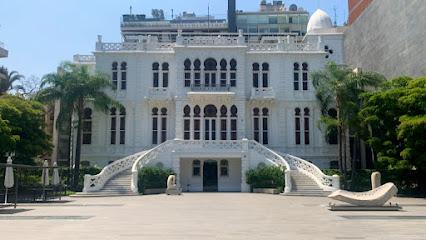
Monastery Saint Maroun
Experience the serene beauty and spiritual heritage of Monastery Saint Maroun, a tranquil retreat in the heart of Aannaya, Lebanon.
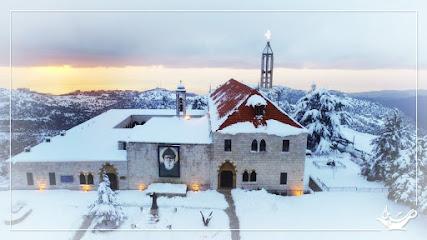
Essential places to dine
T-Marbouta
Experience authentic Lebanese flavors at T-Marbouta in Hamra Square, Beirut—where tradition meets culinary excellence.
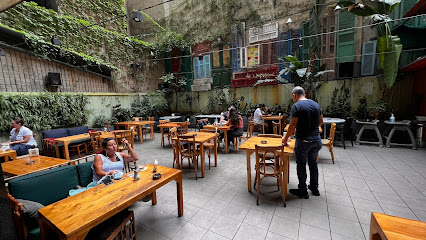
Swiss Butter - Gemmayze
Experience gourmet steak dining at Swiss Butter in Gemmayze, Beirut - where taste meets elegance in every bite.
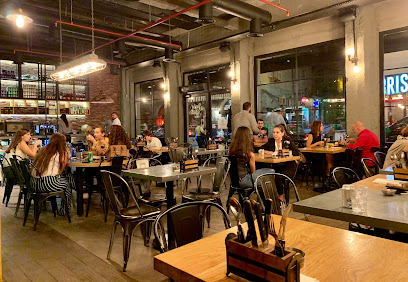
Loris Restaurant
Discover the exquisite blend of Lebanese and Spanish flavors at Loris Restaurant in Beirut - where every meal is a celebration.
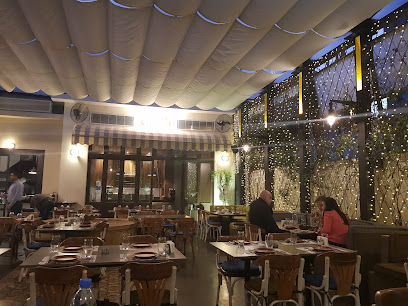
Al Falamanki Sodeco
Experience authentic Lebanese cuisine at Al Falamanki Sodeco in Beirut – where tradition meets flavor in every bite.
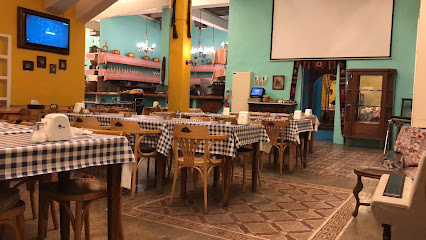
Mayrig
Discover the rich flavors of authentic Armenian cuisine at Mayrig in Beirut—an unforgettable culinary journey awaits.
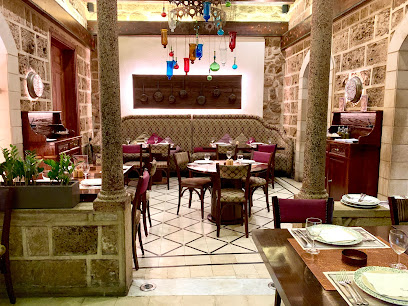
Em Sherif Cafe
Experience authentic Lebanese cuisine at Em Sherif Cafe in Beirut - where tradition meets taste in every dish.
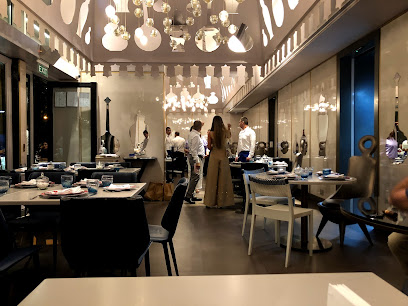
Em Sherif
Experience authentic Lebanese flavors at Em Sherif in Beirut, where every dish tells a story of tradition and passion.
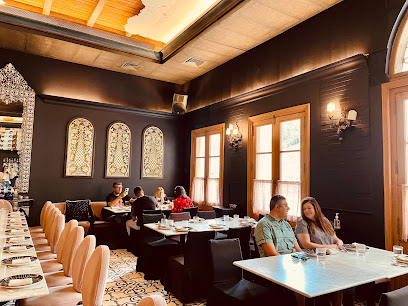
Society
Discover Society Bistro in Beirut: A modern culinary gem blending local flavors with chic ambiance for an unforgettable dining experience.
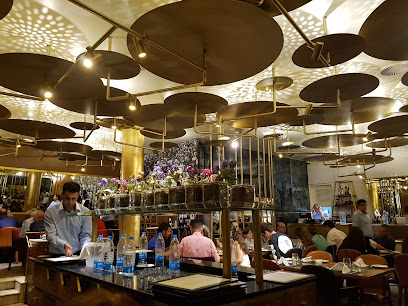
Enab Restaurant
Experience authentic Lebanese cuisine at Enab Restaurant in Beirut – where tradition meets flavor in every bite.
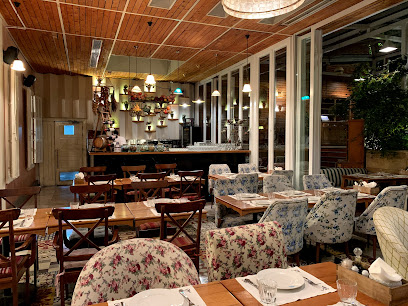
Babel Bay
Experience authentic Lebanese cuisine at Babel Bay - where tradition meets modernity in every dish.
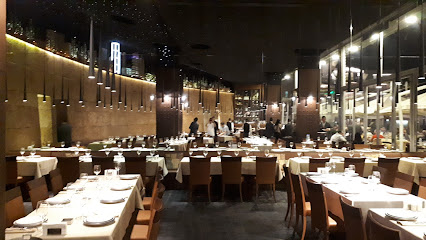
Bayt Em Nazih
Experience authentic Lebanese cuisine at Bayt Em Nazih in Beirut - where every dish tells a story.
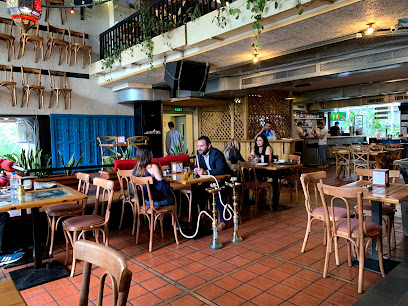
Couqley French Bistro _ Gemmayze
Experience authentic French cuisine at Couqley French Bistro in Beirut's vibrant Gemmayze district – where Paris meets Lebanon.
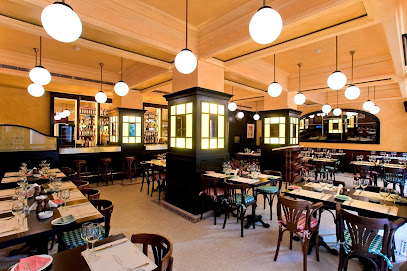
DIVVY
Experience the best of Lebanese cuisine at DIVVY in Beirut - where tradition meets modern culinary artistry.
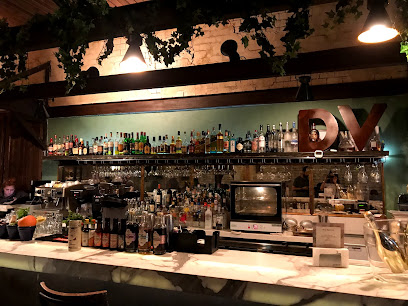
Liza
Experience authentic Lebanese cuisine at Liza in Beirut - where tradition meets modern dining excellence.
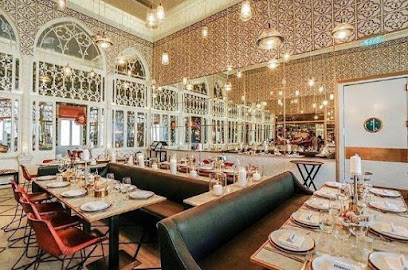
Jai asian Restaurant
Experience authentic Indian and Thai flavors at Jai Asian Restaurant in Beirut – where every meal is a delightful journey through Asia's rich culinary heritage.
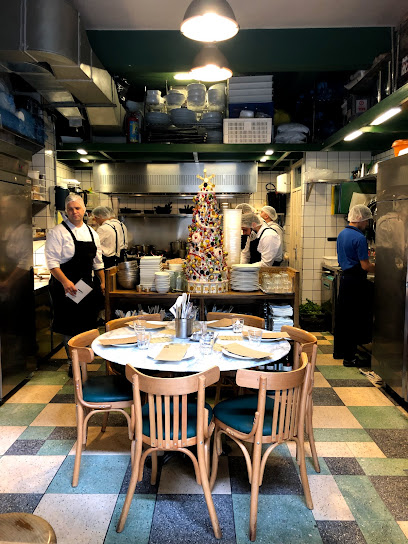
Markets, malls and hidden boutiques
بيروت مول
Experience the vibrant shopping culture at Beirut Mall, featuring diverse shops, dining options, and entertainment in the heart of Hazmieh.
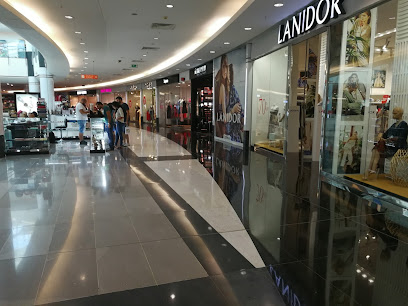
Cookie Dough Boutique
Discover the joy of children's fashion at Cookie Dough Boutique, offering stylish clothing and accessories for your little ones in Beirut.
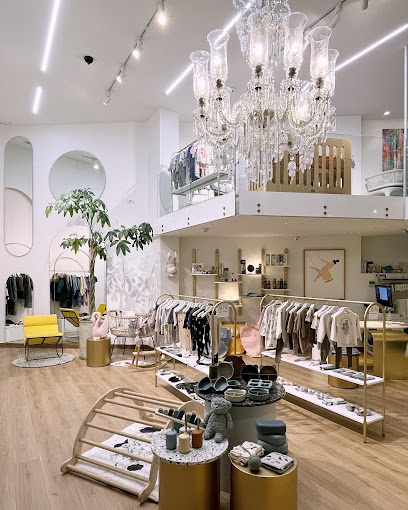
Boutique Du Monde
Discover exquisite home décor and unique outdoor furniture at Boutique Du Monde, your destination for stylish living in Beirut.
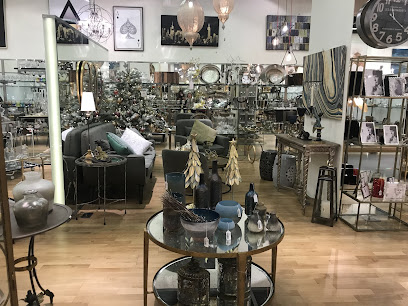
Pop Up Concepts Flagship
Explore the eclectic charm of Pop Up Concepts Flagship in Beirut, where fashion meets art and unique collectibles await.
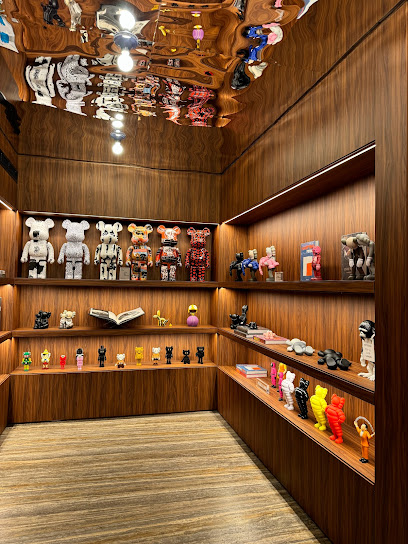
Karout Toys Trading
Discover a magical selection of toys at Karout Toys Trading, a premier gift shop in Beirut, perfect for children and the young at heart.
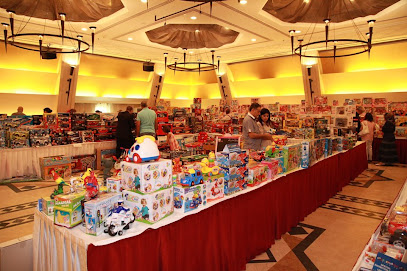
Orient 499 Beirut
Explore the unique blend of fashion and home goods at Orient 499 in Beirut, where local craftsmanship meets contemporary style.
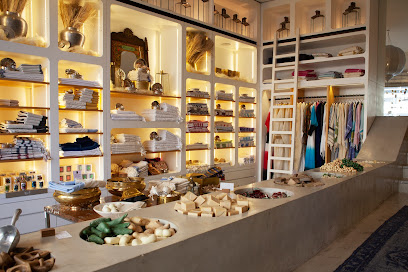
Marwan Moukhallalati
Explore Marwan Moukhallalati in Kaskas, Beirut for exquisite souvenirs, artisan chocolates, and unique textiles that embody the spirit of Lebanon.
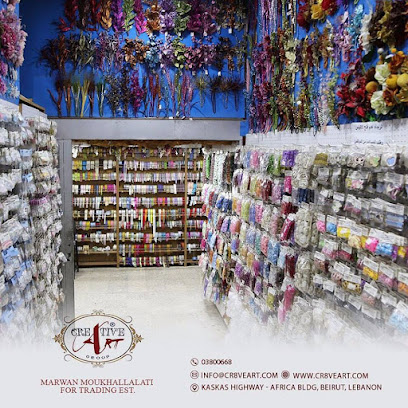
DEPOT-VENTE BEIRUT
Explore the charm of vintage fashion at DEPOT-VENTE BEIRUT, where unique treasures await in every corner.
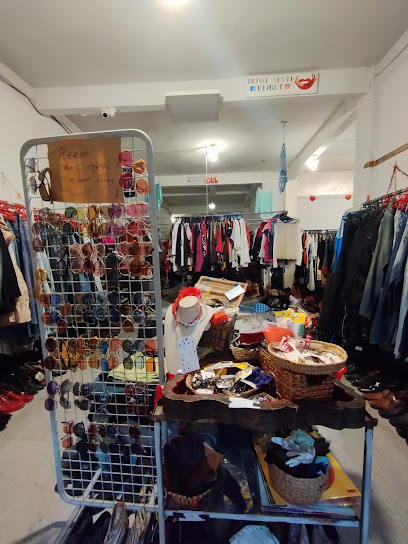
Giftmania Collectables
Explore Giftmania Collectables in Bliss, Beirut for unique souvenirs and local artisan treasures that capture the essence of Lebanon.
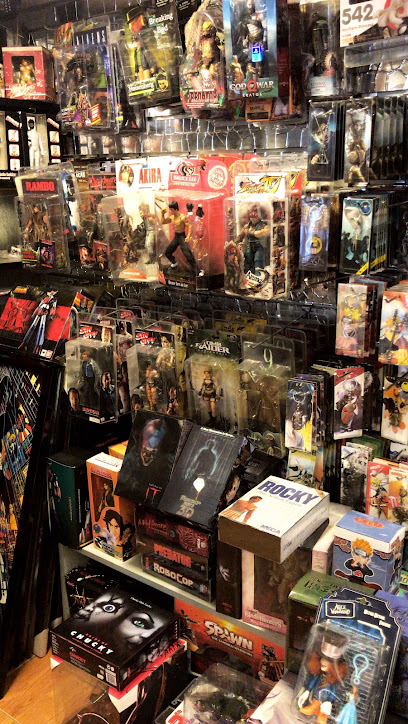
Feryal - the mouneh boutique
Discover the taste of Lebanon at Feryal, a gourmet grocery store offering artisanal delights and local flavors in the heart of Beirut.
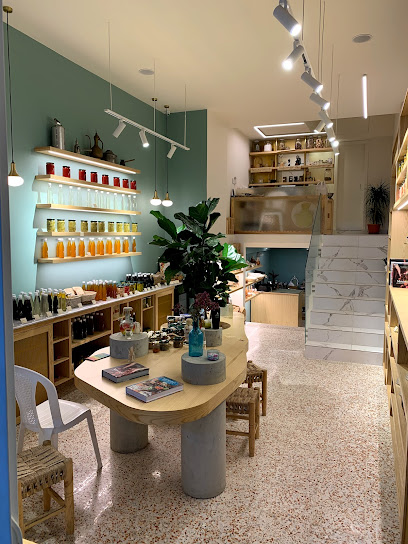
Luanatic
Explore Luanatic, Beirut's charming gift shop offering unique souvenirs, baby items, and trendy accessories reflecting the heart of Lebanese culture.
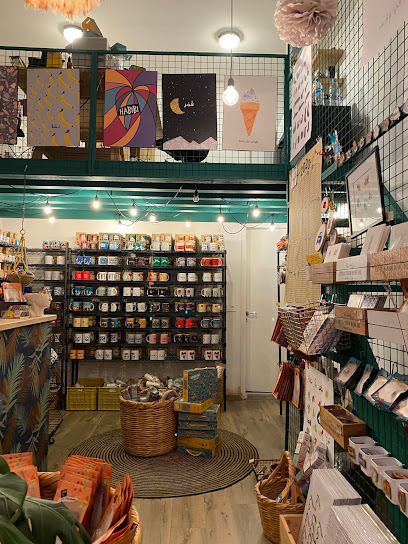
Nouvelle Vague Vintage Store
Explore the finest vintage clothing and accessories at Nouvelle Vague Vintage Store in Beirut for a unique shopping experience.
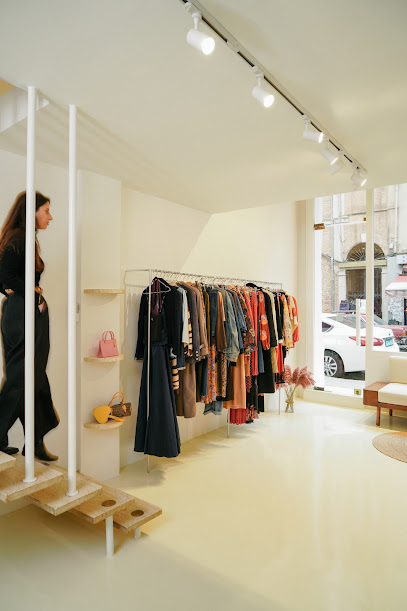
Podium
Discover the latest fashion trends at Podium, a premier clothing store in the heart of Beirut, perfect for stylish tourists and locals alike.
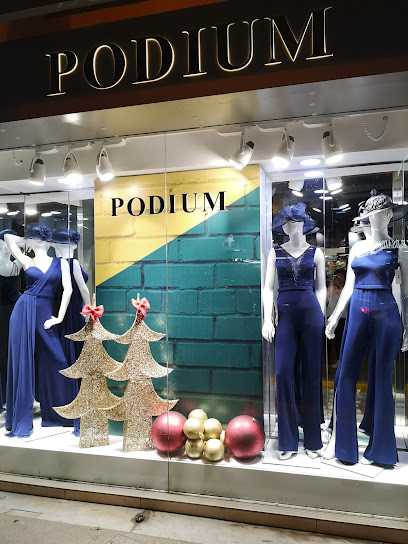
The Vintage Shop 961
Explore The Vintage Shop 961 in Bourj Hammoud for unique gifts, vintage treasures, and a taste of Lebanese culture.
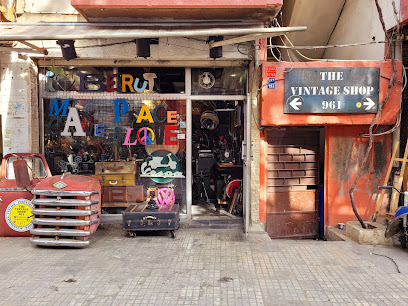
oddfish concept store
Explore Oddfish Concept Store in Beirut for unique gifts, fashion, and local artistry in a vibrant shopping atmosphere.
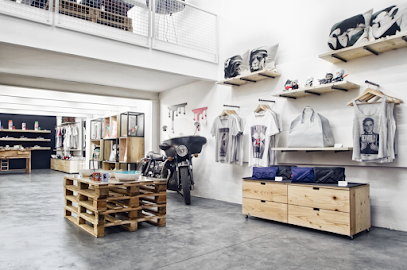
Essential bars & hidden hideouts
FABRK
Experience Beirut's nightlife at FABRK, a chic lounge offering exquisite cocktails and vibrant vibes in the heart of the city.
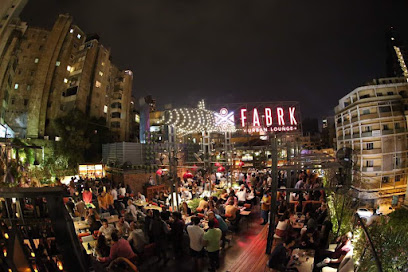
The Bohemian Bar
Discover the vibrant nightlife of Beirut at The Bohemian Bar, where eclectic cocktails meet lively entertainment in an inviting atmosphere.
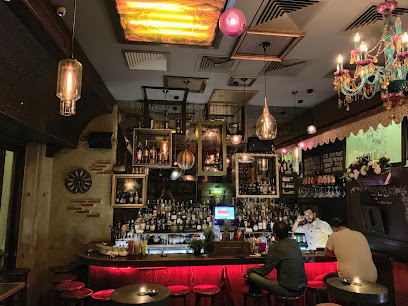
Central Station Boutique Bar
Discover the vibrant cocktail culture at Central Station Boutique Bar in Beirut, where creativity meets local flavors in an inviting ambiance.
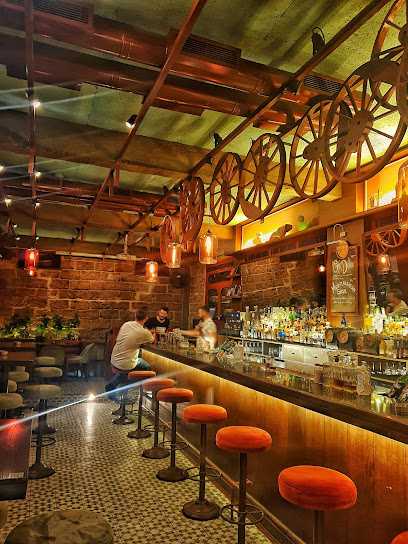
Lock Stock
Experience the vibrant nightlife of Beirut at Lock Stock, a premier bar known for its exceptional cocktails and lively atmosphere.
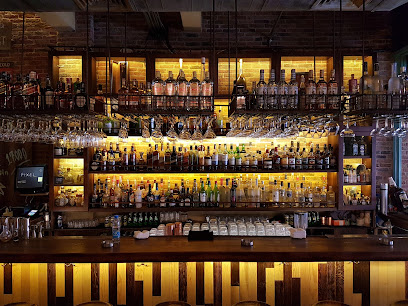
Neighbors Pub
Experience the vibrant nightlife of Beirut at Neighbors Pub, where great food, friendly vibes, and unforgettable moments await.
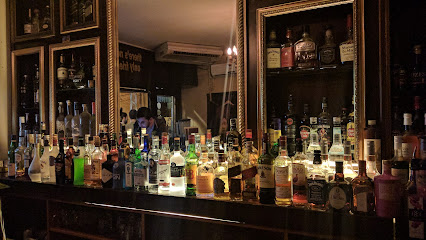
Bar 35
Experience the vibrant nightlife of Beirut at Bar 35, where exquisite cocktails and live music create unforgettable memories.
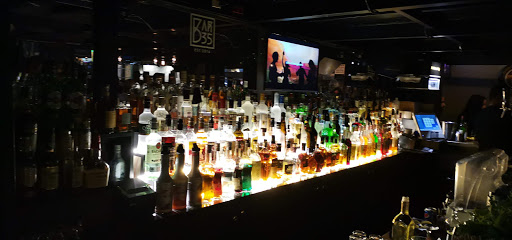
Ales & Tales
Discover Ales & Tales, a lively bar in Beirut offering unique drinks, great music, and a vibrant atmosphere for an unforgettable night out.
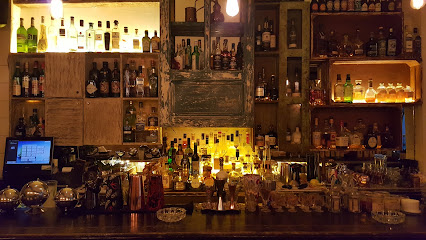
The Jerry Thomas Experience
Discover The Jerry Thomas Experience, Beirut's premier cocktail bar, where innovative drinks meet a vibrant nightlife atmosphere.
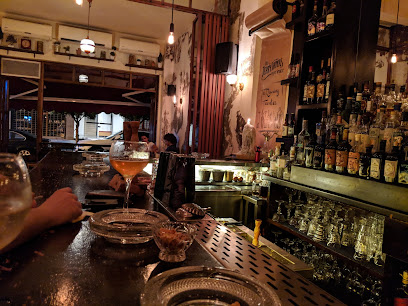
Abou Elie Pub
Discover the lively atmosphere and extensive drink selection at Abou Elie Pub, a nightlife gem in Beirut's vibrant social scene.
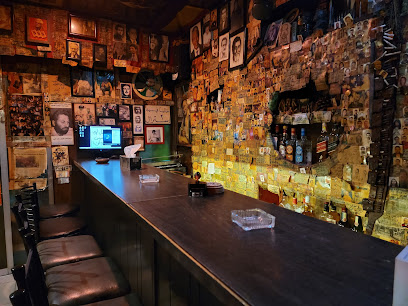
Demo
Experience the lively atmosphere of Gemmayzeh Bar in Beirut, where local flavors and vibrant nightlife come together in perfect harmony.
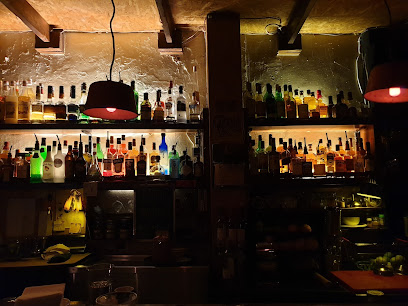
Rabbit Hole Pub & Grub
Experience the lively ambiance and delicious comfort food at Rabbit Hole Pub & Grub in Beirut, where every visit is unforgettable.
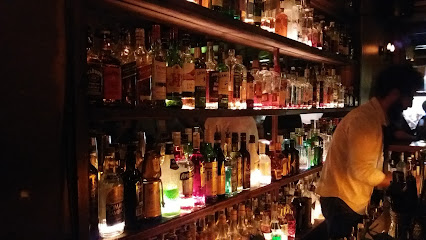
Dragonfly
Experience Beirut's vibrant nightlife at Dragonfly, a cocktail bar where innovative drinks and an electric atmosphere come together for an unforgettable evening.
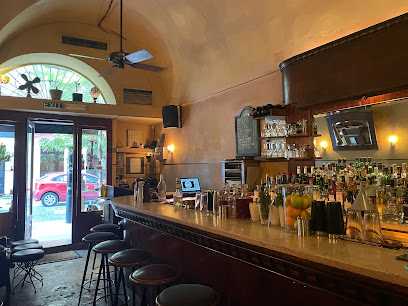
EDEN Cocktail Bar
Experience the vibrant nightlife of Beirut at Eden Cocktail Bar, where exquisite cocktails and lively ambiance await you.
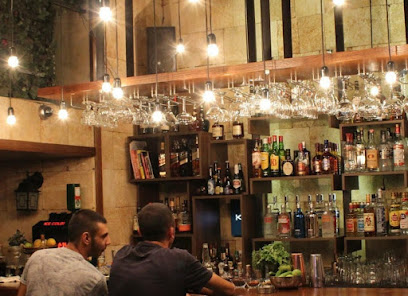
Madmen
Experience the vibrant nightlife of Beirut at Madmen, a cocktail bar known for its eclectic drinks and lively atmosphere.
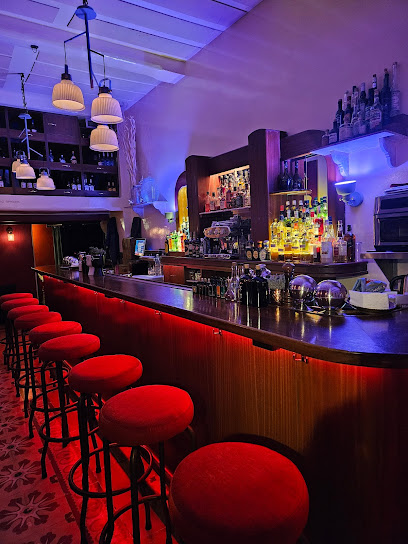
Floyd the Dog
Discover Floyd the Dog, Beirut's ultimate nightlife destination, featuring creative cocktails, vibrant atmosphere, and unforgettable live music.
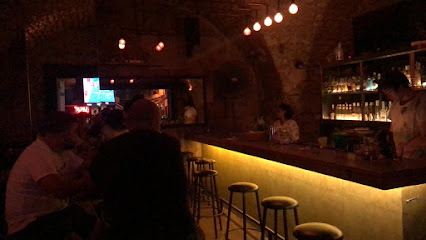
Local Phrases
-
- Helloمرحبا
[marhaba] - Goodbyeوداعا
[wada'an] - Yesنعم
[naam] - Noلا
[la] - Please/You're welcomeمن فضلك/على الرحب والسعة
[min fadlik/ala arrahb wasa'ah] - Thank youشكرا
[shukran] - Excuse me/Sorryعذرا
[udhran] - How are you?كيف حالك؟
[kayf halak?] - Fine. And you?بخير. وأنت؟
[bikhayr. wa'ant?] - Do you speak English?هل تتحدث الإنجليزية؟
[hal tatahadath al'inglizia?] - I don't understandلا أفهم
[la afham]
- Helloمرحبا
-
- I'd like to see the menu, pleaseأريد أن أرى القائمة، من فضلك
[uridu an ara alqaimah, min fadlik] - I don't eat meatأنا لا آكل اللحم
[ana la aklul lahmi] - Cheers!صحتين!
[sahhtain!] - I would like to pay, pleaseأريد أن أدفع، من فضلك
[uridu an adfa', min fadlik]
- I'd like to see the menu, pleaseأريد أن أرى القائمة، من فضلك
-
- Help!النجدة!
[alnajdah!] - Go away!انصرف!
[insarf!] - Call the Police!اتصل بالشرطة!
[atassil bialshurta!] - Call a doctor!اتصل بطبيب!
[atassil bitabib!] - I'm lostلقد ضللت
[laqad dalalt] - I'm illأنا مريض
[ana mareed]
- Help!النجدة!
-
- I'd like to buy...أريد أن أشتري...
[uridu an ashtari...] - I'm just lookingأنا فقط أتفرج
[ana faqat atafarraj] - How much is it?كم سعره؟
[kam sa'ruh?] - That's too expensiveهذا غالي جدا
[hatha ghali jiddan] - Can you lower the price?هل يمكنك خفض السعر؟
[hal yumkinuka khafd alsu'r?]
- I'd like to buy...أريد أن أشتري...
-
- What time is it?كم الساعة؟
[kam alsaa'a?] - It's one o'clockالساعة الواحدة
[alsaa'ah alwahidah] - Half past (10)الساعة العاشرة والنصف
[alsaa'ah al'ashirah walnisf] - Morningالصباح
[alsabah] - Afternoonالظهر
[aldhuhur] - Eveningالمساء
[almasa'] - Yesterdayأمس
[ams] - Todayاليوم
[alyawm] - Tomorrowغدا
[ghadan] - 1واحد
[wahid] - 2اثنان
[ithnan] - 3ثلاثة
[thalathah] - 4أربعة
[arba'ah] - 5خمسة
[khamsah] - 6ستة
[sittah] - 7سبعة
[saba'ah] - 8ثمانية
[thamaniah] - 9تسعة
[tis'ah] - 10عشرة
[asharah]
- What time is it?كم الساعة؟
-
- Where's a/the...?أين...؟
[ayn...?] - What's the address?ما هو العنوان؟
[ma huwa al'anaan?] - Can you show me (on the map)?هل يمكنك أن تريني (على الخريطة)؟
[hal yumkinuka an tureeni (ala alkharitah)?] - When's the next (bus)?متى القادم (الحافلة)؟
[mata alqadim (alhafilah)?] - A ticket (to ....)تذكرة (إلى...)
[tadhkirah (ila...)]
- Where's a/the...?أين...؟
History of Beirut
-
Beirut's history dates back over 5,000 years, with evidence of settlement during the Canaanite period. The city's name is derived from the Canaanite word 'Be'erot' which means 'wells,' reflecting its early significance as a source of fresh water.
-
During the Roman period, Beirut—then known as Berytus—became a major center of learning and law. The city's School of Law was renowned throughout the Roman Empire, producing some of the era's most influential legal minds. Significant Roman ruins, including the Roman Baths, still stand in Beirut today.
-
Following the decline of the Roman Empire, Beirut fell under Byzantine control before being conquered by Arab forces in the 7th century. This period saw the construction of many religious and cultural buildings, contributing to Beirut's rich tapestry of architectural history.
-
Beirut was a key battleground during the Crusades and later became part of the Ottoman Empire in the early 16th century. Under Ottoman rule, the city prospered as a trade hub, attracting merchants from across the Mediterranean and beyond.
-
After World War I, Beirut came under French mandate. This period saw significant modernization and urban development. Lebanon gained independence from France in 1943, with Beirut emerging as the nation's vibrant capital.
-
From 1975 to 1990, Beirut was ravaged by a brutal civil war that left much of the city in ruins. The Green Line, which divided East and West Beirut, became a symbol of the conflict. Despite the devastation, Beirut's spirit endured, and the city has since undergone significant reconstruction.
-
Post-civil war Beirut has seen extensive rebuilding efforts, transforming the city into a modern metropolis while preserving its historical heritage. Key projects include the revitalization of the downtown area and the restoration of historic sites.
-
Beirut is renowned for its cultural diversity, a reflection of its complex history. The city boasts a rich tapestry of religious and ethnic communities, including Maronites, Sunni and Shia Muslims, Druze, and Armenians, each contributing to its unique cultural landscape.
-
Today, Beirut is known for its vibrant nightlife, culinary scene, and cultural festivals. Despite facing ongoing challenges, including political instability and economic difficulties, the city's resilience and dynamism continue to shine through.
Beirut Essentials
-
Beirut is serviced by Beirut-Rafic Hariri International Airport (BEY), located about 9 kilometers from the city center. Numerous international airlines operate flights to Beirut from major cities worldwide. Taxis and ride-sharing services are available at the airport to take you to your accommodation. Public buses also run between the airport and various parts of the city.
-
Beirut offers a range of transportation options including taxis, ride-sharing services, and public buses. Taxis can be found throughout the city, but always ensure the meter is running or agree on a fare beforehand. Ride-sharing apps like Uber are also widely used. Public buses are an affordable option, though routes and schedules can be unpredictable. For a more authentic experience, you can also use the shared vans known as 'service' taxis, which follow set routes and are a common mode of transport for locals.
-
The official currency in Lebanon is the Lebanese Pound (LBP), but US dollars are widely accepted. Credit cards are commonly used in hotels, restaurants, and larger stores, but it's advisable to carry cash for smaller purchases or in more rural areas. ATMs are readily available throughout Beirut, and money exchange offices can be found in various parts of the city.
-
Beirut is generally safe for tourists, but it's essential to stay vigilant. Areas like Bourj Hammoud and parts of the southern suburbs should be avoided, especially at night, due to higher crime rates. Always be cautious of pickpockets in crowded areas, and avoid displaying valuable items openly. Stick to well-lit and populated areas, especially after dark.
-
In case of emergency, dial 112 for police assistance, 125 for the fire department, and 140 for medical emergencies. Major hospitals like the American University of Beirut Medical Center (AUBMC) and Hôtel-Dieu de France offer comprehensive medical services. Always have travel insurance that covers medical emergencies. For minor health issues, many pharmacies are open 24/7 and can provide over-the-counter medications.
-
Fashion: Do dress modestly, particularly when visiting religious sites. Avoid overly revealing clothing.
-
Do respect local customs and traditions. When visiting mosques or churches, dress appropriately and remove your shoes if required.
-
Do be respectful and give up your seat to elderly passengers. Avoid eating or drinking on public transport.
-
Do greet people with a handshake, and use 'marhaba' (hello) or 'salam' (peace) as a greeting. Avoid overly familiar gestures with strangers.
-
Do try local delicacies and accept food offerings graciously. Don't refuse hospitality, as it is considered impolite.
-
To experience Beirut like a local, visit the bustling Hamra Street for shopping and dining, explore the historic Gemmayzeh neighborhood for its vibrant nightlife, and enjoy a walk along the Corniche for stunning coastal views. Engage with locals; they are often friendly and willing to share insights about the city. Don’t miss the opportunity to try traditional Lebanese dishes such as tabbouleh, hummus, and kibbeh at local eateries.
Trending Landmark in Beirut
Nearby Cities to Beirut
-
Things To Do in Broummana
-
Things To Do in Aley
-
Things To Do in Jounieh
-
Things To Do in Deir el Qamar
-
Things To Do in Byblos
-
Things To Do in Zahle
-
Things To Do in Sidon
-
Things To Do in Batroun
-
Things To Do in Anjar
-
Things To Do in Rashaya
-
Things To Do in Marjayoun
-
Things To Do in Bcharre
-
Things To Do in Baalbek
-
Things To Do in Tyre
-
Things To Do in Rosh HaNikra

















